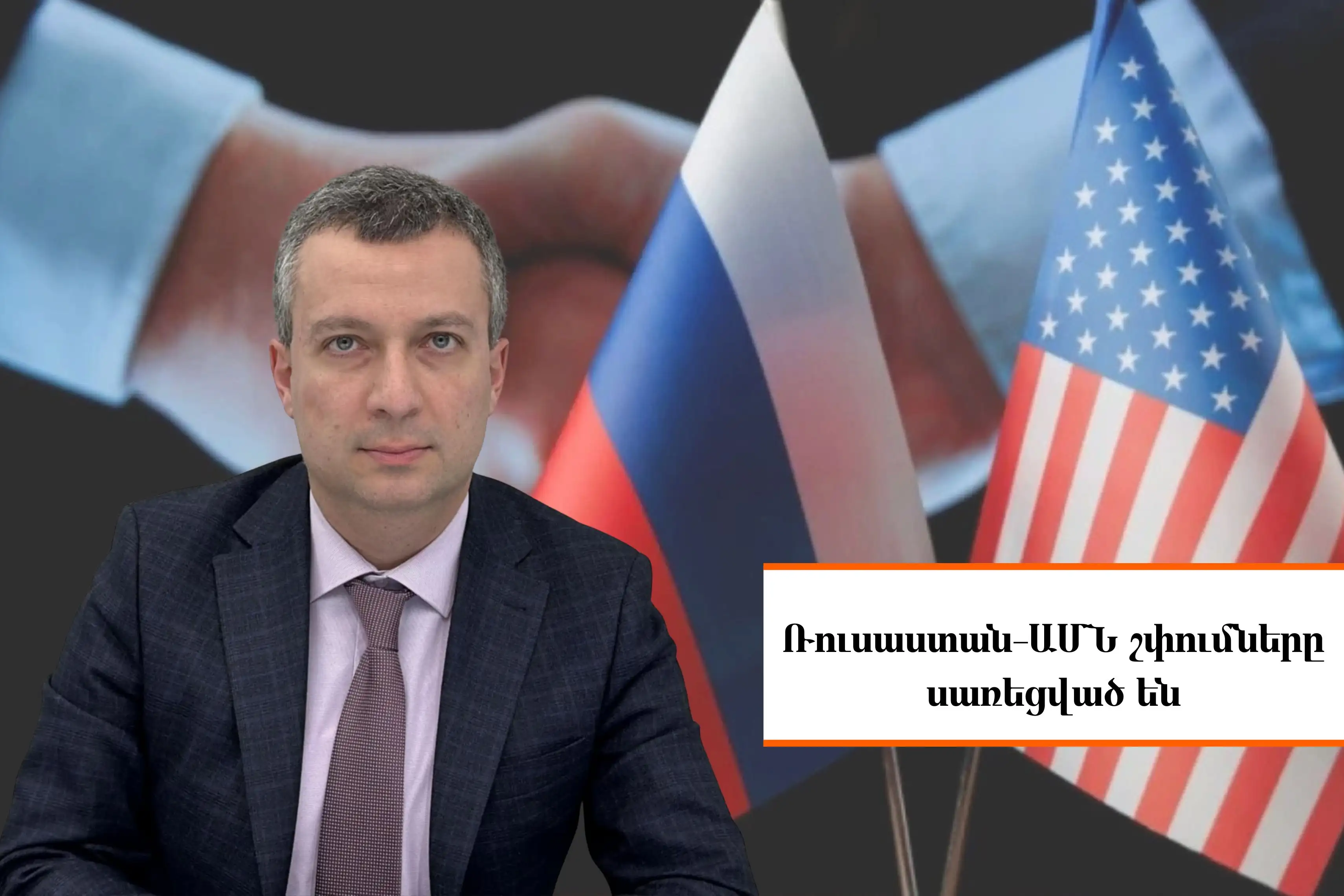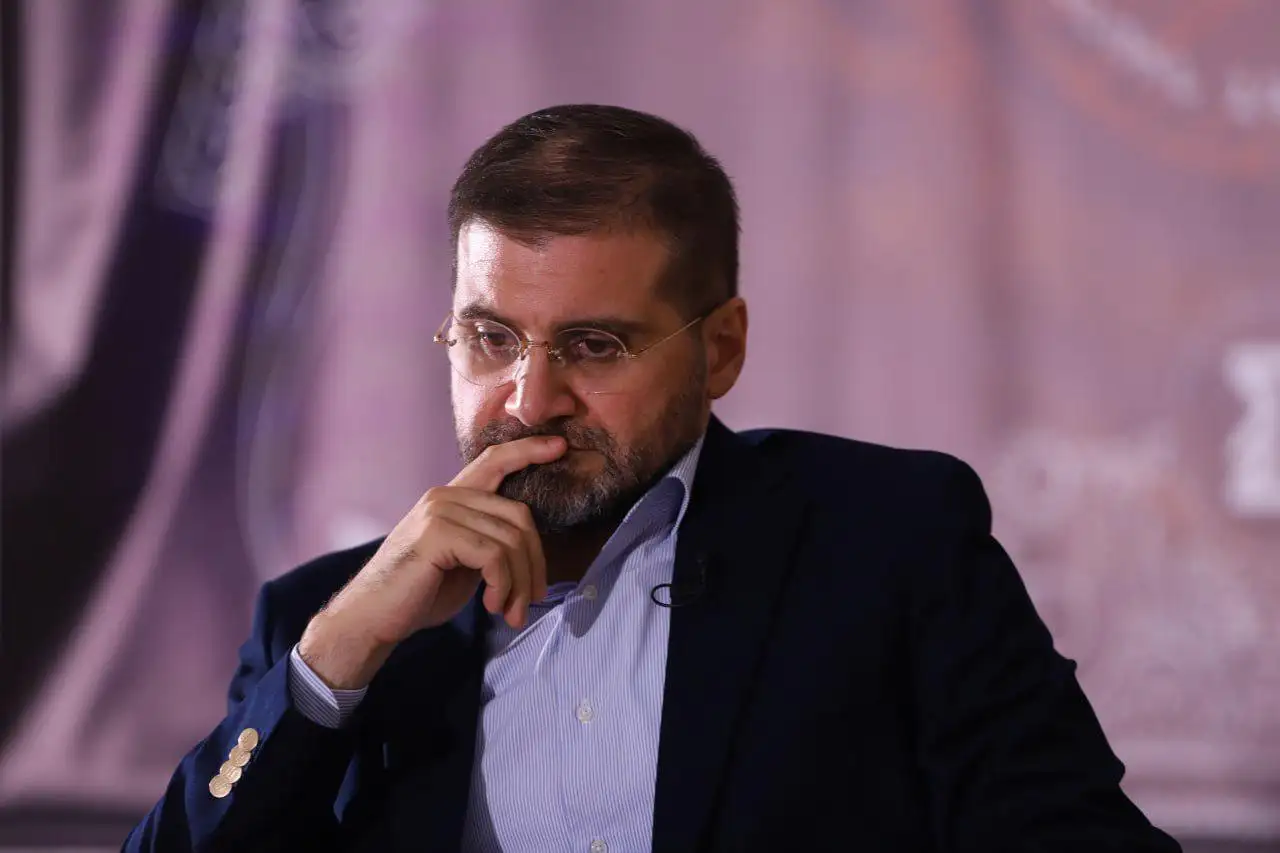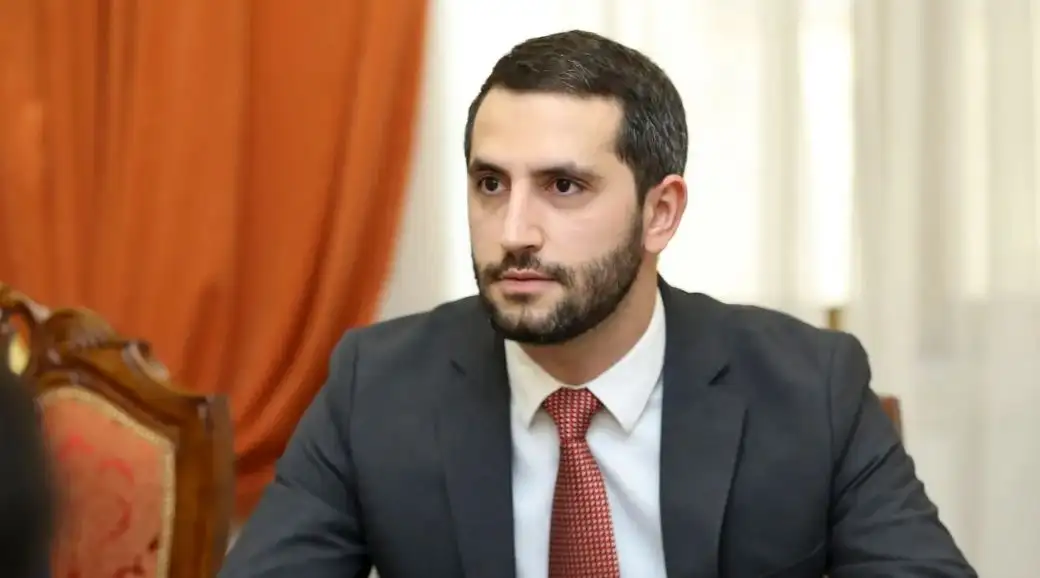Russian President's Press Secretary Dmitry Peskov stated that it is necessary to improve Russian-US relations and explore new opportunities for economic cooperation between the two countries.
Radar Armenia spoke to Beniamin Poghosyan, a senior expert at the "APRI Armenia" analytical center, on the topic.
-What political and strategic goals could be hidden behind this statement, considering that the United States is introducing new anti-Russian sanctions at the same time?
-The statement of the Russian President's press secretary gives the impression of more of a PR action, because at the moment, Russia-US contacts are also frozen. We understand that the expected meeting between the two presidents in Budapest has been postponed, and there is no clear understanding between the parties on how to proceed with the conflict in Ukraine. Russia insists that the agreements reached during the Alaska meeting must be implemented. Of course, their details have not been made public. Still, it is assumed that during that meeting the Americans accepted Russia's main demands, at least that Ukraine should withdraw its troops from 30% of the Donetsk region that it currently controls. There are several major cities in the area, including Slavyansk, Kramatorsk, and Konstantinovka, around which fighting continues as a first step towards establishing a ceasefire. Both European countries and Ukraine have rejected this option.
- Can we consider this as a formal initiative for dialogue by Moscow to soften its own international positions, or a real message towards starting a new phase?
-It is not very realistic to talk about intensive Russian-American economic relations in these conditions. Perhaps Russia is trying to send a message to the Americans that, look, if you can force Ukraine and its European allies to agree to our conditions, which we put forward in Alaska, then this will facilitate the development of Russian-American business relations. Everyone knows that the business deals of the current American administration are significant and, perhaps, form the basis of foreign policy, and maybe this is another hint that, you see, there are great opportunities for billions, maybe tens of billions of dollars in profits from joint business activities. And if you want to make all this a reality, we need to increase pressure on Ukraine and Ukraine's European allies.
-The new US sanctions package is aimed at large Russian energy companies, which have not only an economic but also a geopolitical impact. What consequences could these steps have on the global energy market?
-In my opinion, this statement or these calls are unlikely to bring about any profound change, because the US does not even have the opportunity to force Ukraine and its European allies to accept Russia's demands, even if it wanted to. After all, Ukraine and European states perceive this as capitulation. And neither Ukraine nor European states believe that they are in a position to accept Russia's demand for de facto capitulation, especially now that we are talking about the use of frozen Russian assets to provide weapons and economic assistance to Ukraine, and we are talking about large numbers. It is obvious that if European states take this step, the primary opponent here will be Belgium, because Belgium may also face serious problems in future legal proceedings.
It remains challenging to provide a comprehensive assessment of the consequences these latest American sanctions will have on the two Russian energy giants. There will be an impact, but more time is needed and more precise data are required to understand its extent fully.
Lilit Abrahamyan


















